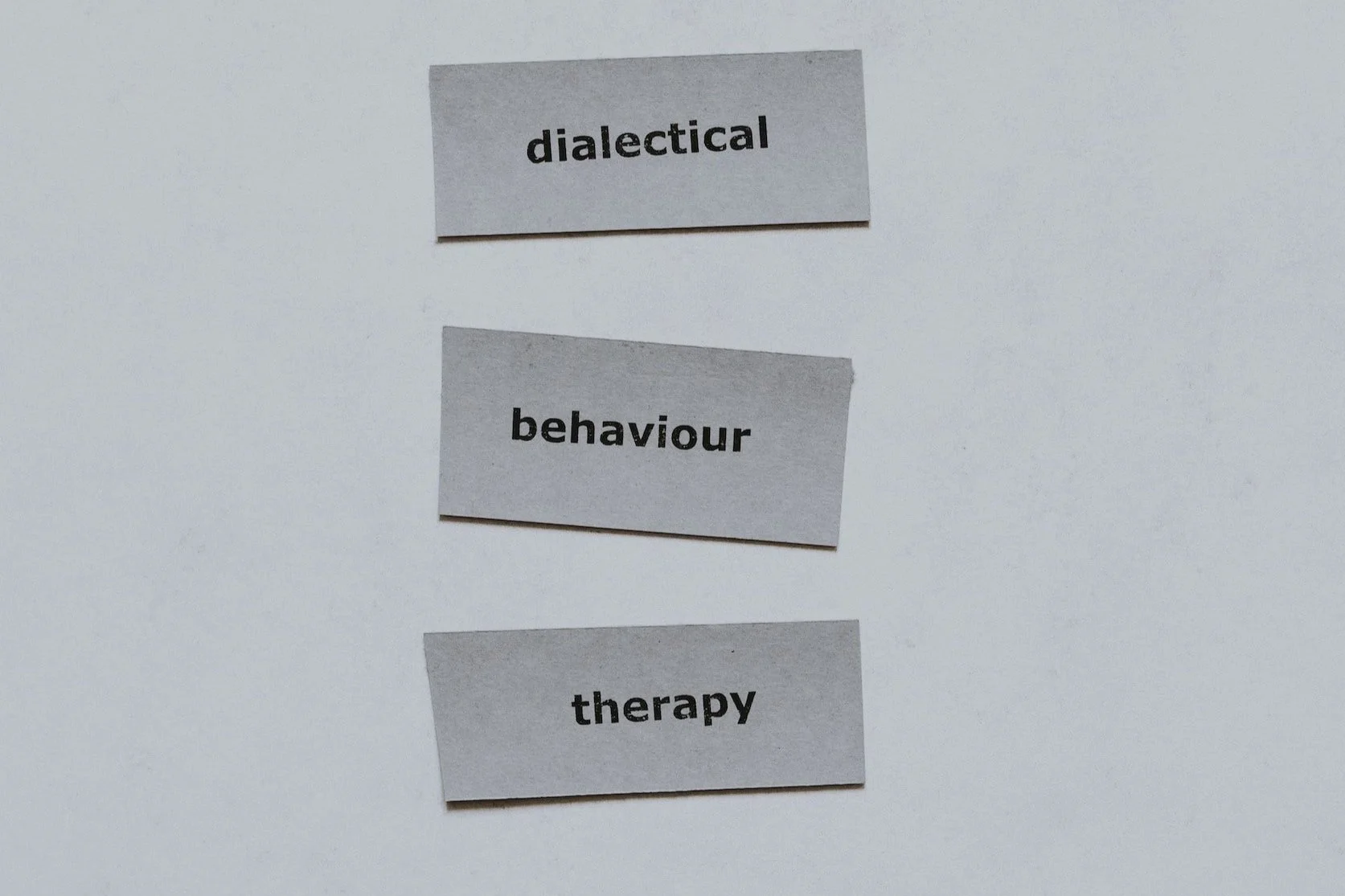Treatment Approach
Cognitive Behavioral Therapy (CBT)
Cognitive Behavior Therapy (CBT) is a psychotherapy that has been shown to be effective in over 1,000 research studies. It is a time-sensitive, structured, present-oriented psychotherapy that helps individuals identify goals that are most important to them and overcome obstacles that get in the way. CBT helps people get better and stay better.
CBT is based on the cognitive model: the way that individuals perceive a situation is more closely connected to their reaction than the situation itself.
CBT is known for treating disorders such as Depression, Anxiety, PTSD, Eating Disorders, and Sleep Problems such as Insomnia to name a few.
Eye Movement Desensitization and Reprocessing (EMDR)
EMDR stands for Eye Movement Desensitization and Reprocessing. It is one of the most researched and empirically supported forms of trauma therapy. EMDR enables people to heal from the symptoms and emotional distress that are the result of disturbing life experiences. Repeated studies show that by using EMDR therapy people can experience the benefits of psychotherapy that once took years to make a difference. It is widely assumed that severe emotional pain requires a long time to heal. EMDR therapy shows that the mind can in fact heal from psychological trauma much as the body recovers from physical trauma. Using the detailed protocols clinicians help clients activate their natural healing processes.
Solution-Focused Therapy
Solution-focused therapy is a brief and clinically effective treatment method. The goal of solution-focused therapy is to empower clients by helping them envision future goals for themselves, and identify positive directions in their lives.
A key principle in solution-focused therapy is that causes of problems are often extremely complex, but usually their solutions do not need to be.
We often combine Solution-focused therapy with Motivational Interviewing (MI). Motivational interviewing is directive, client-centered counseling style for eliciting behavior change by helping clients to explore and resolve ambivalence.
Treatment Approach
Exposure Response Prevention (ERP)
Exposure and Response Prevention (ERP) is a subtype Cognitive Behavior Therapy (CBT).
ERP refers to exposing yourself to the thoughts, images, objects and situations that make you anxious and/or start your obsessions. While the Response Prevention part of ERP, refers to making a choice not to do a compulsive behavior once the anxiety or obsessions have been “triggered.” All of this is done under the guidance of a therapist at the beginning — though you will eventually learn to do your own ERP exercises to help manage your symptoms. ERP has been shown to be the most effective for treating OCD. It is also clinically used for panic and anxiety disorders.
Trauma-Focused Cognitive Behavioral Therapy (TF-CBT)
Trauma-Focused Cognitive Behavioral Therapy (TF-CBT) is an evidence-based treatment for children and adolescents impacted by trauma and their parents or caregivers. Research shows that TF-CBT successfully resolves a broad array of emotional and behavioral difficulties associated with single, multiple and complex trauma experiences. This is the official TF-CBT National Therapist Certification Program, in which clinicians can become certified in the TF-CBT treatment model.
Dialectical behavior therapy (DBT)
Dialectical behavior therapy (DBT) is based on cognitive behavioral therapy (CBT) but it’s specially adapted for people who experience emotions very intensely. Cognitive behavioral therapy (CBT) is a type of talk therapy that helps people understand how thoughts affect emotions and behaviors. “Dialectical” means combining opposite ideas. DBT focuses on helping people accept the reality of their lives and their behaviors, as well as helping them learn to change their lives, including their unhelpful behaviors. The four basic DBT skills include: mindfulness, distress tolerance, interpersonal effectiveness, and emotion regulation.
Treatment Approach
Authenticity Therapy (AT)
Authenticity Therapy (A) is a cutting edge treatment that works virtually for any presenting issue. It is a unified framework, assessment tool, and treatment protocol that goes to the core of what makes people healthy: positive self-parenting. This makes AT a powerful, and deeply healing modality that puts clients in charge of their lives.
Beyond techniques, and schools of thought, AT is a meta-framework that pulls together CBT, EFT, DBT, IFS, Systemic Therapies, Mindfulness Therapies, Somatic Therapies, Attachment Theory, and the best in virtually all modalities into a coherent conceptual framework, as well as a four-step protocol for therapy that works!
Cognitive Processing Therapy (CPT)
Cognitive processing therapy (CPT) is a specific type of cognitive behavioral therapy that has been effective in reducing symptoms of PTSD that have developed after experiencing a variety of traumatic events including child abuse, combat, rape and natural disasters.
CPT is generally delivered over 12 sessions and helps patients learn how to challenge and modify unhelpful beliefs related to the trauma. In so doing, the patient creates a new understanding and conceptualization of the traumatic event so that it reduces its ongoing negative effects on current life.
Motivational Interviewing (MI)
Motivational interviewing (MI) is a counseling approach designed to help people find the motivation to make a positive behavior change. This client-centered approach is particularly effective for people who have mixed feelings about changing their behavior.
Originally, motivational interviewing was focused more on treating substance use disorders by preparing people to change addition-related behavior. Over time, however, motivational interviewing has been found to be a useful intervention strategy in addressing other health behaviors and conditions such as: diet, physical activity, sexual behaviors, and smoking.









